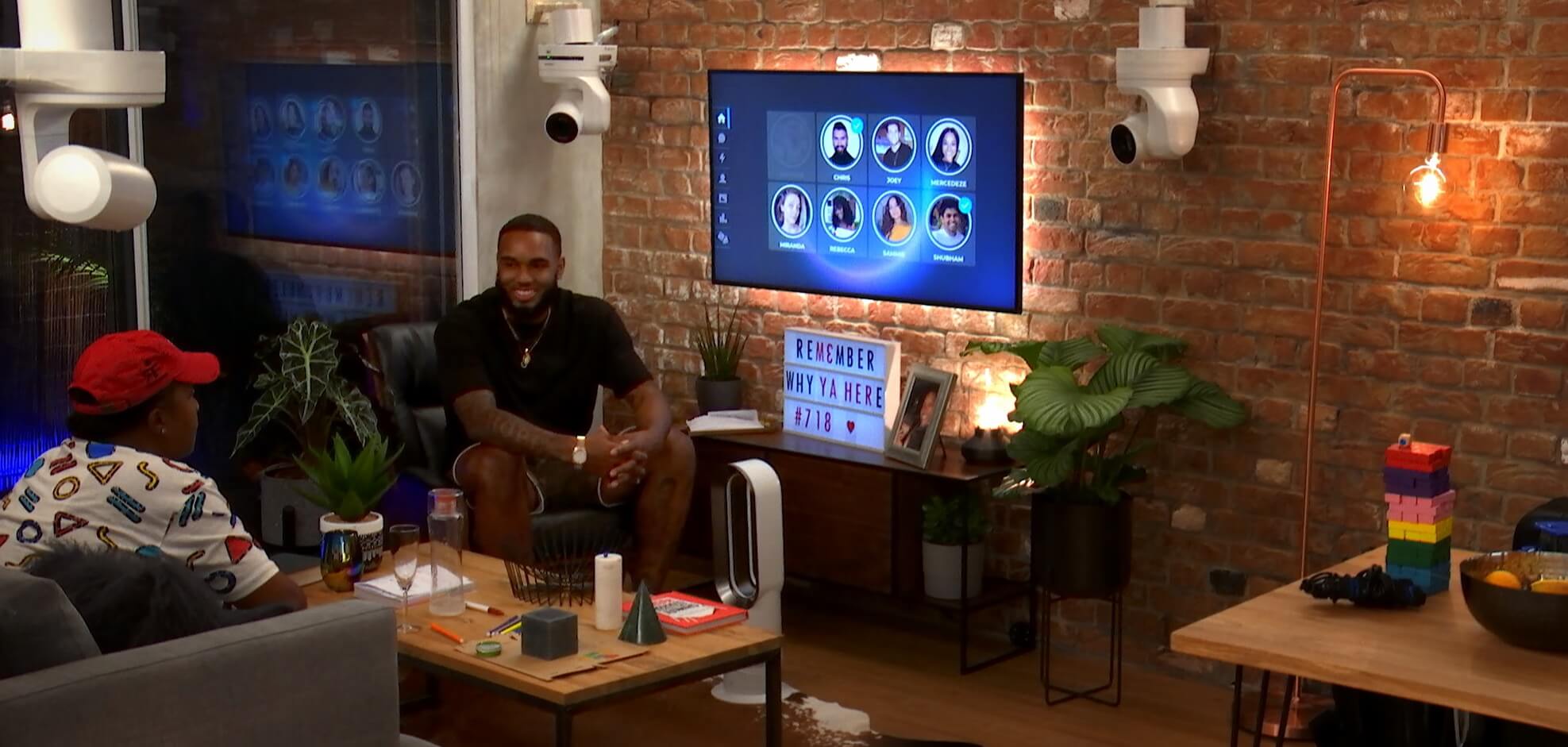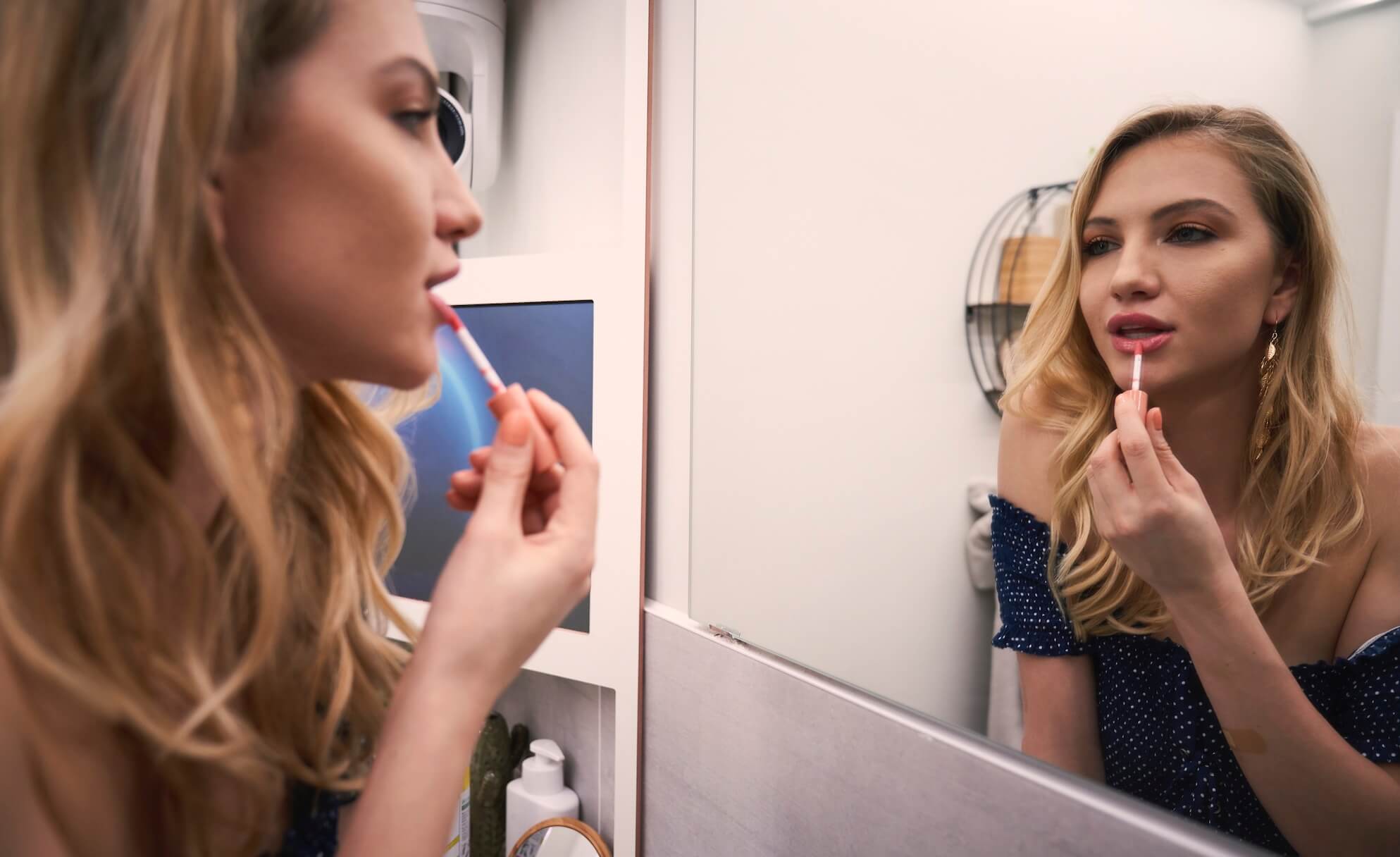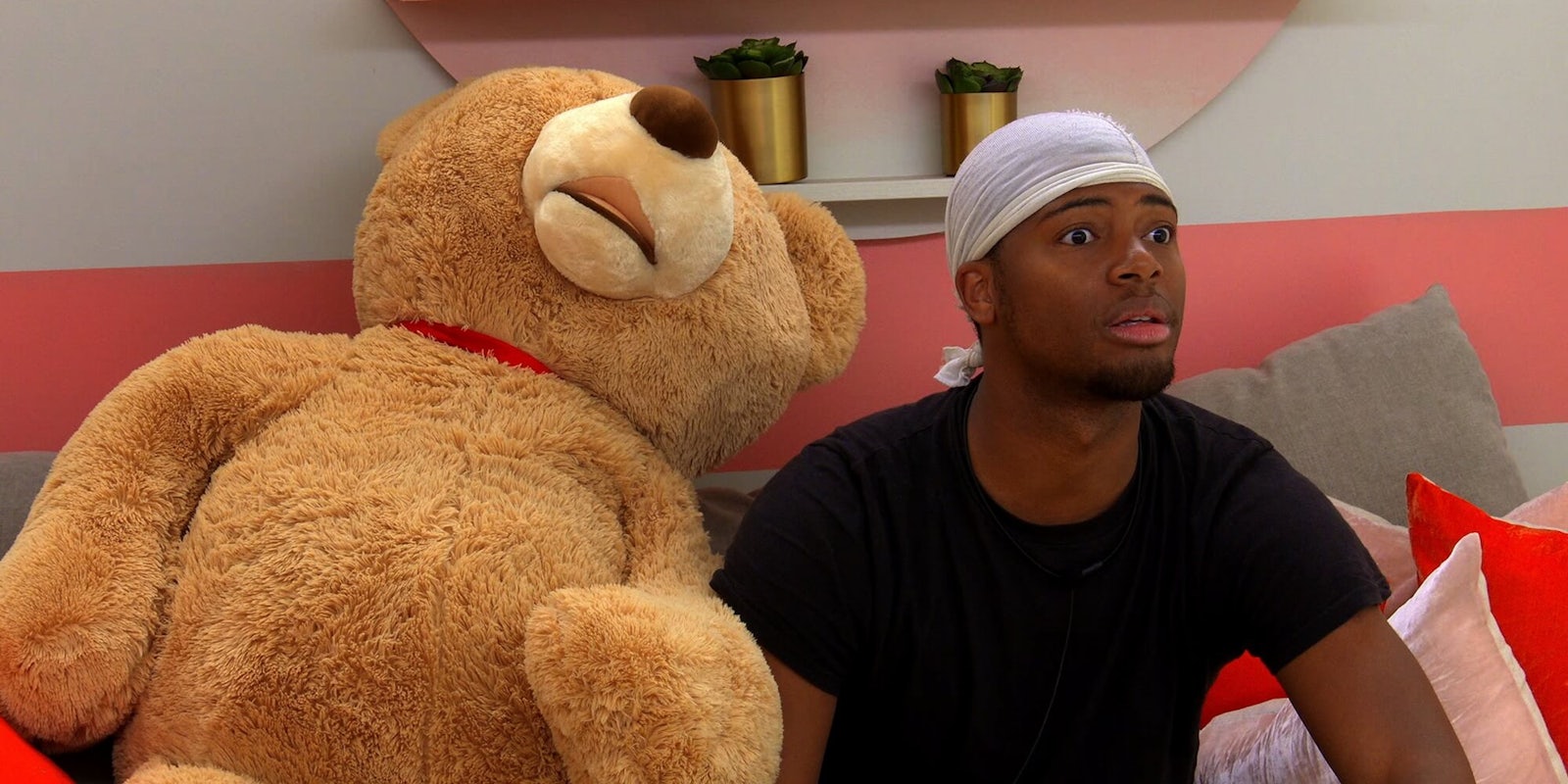Netflix’s The Circle (no relation to the dystopian Dave Eggers novel and movie adaptation) bills itself as Black Mirror meets Big Brother, and it follows the same formula as the UK version that aired in 2018. Eight contestants are put on AirSpace house arrest in an assortment of fully stocked, highly Instagrammable apartments, but they can only interact with each other virtually via The Circle—a sort of glorified group chat hosted on screens in each room (including the bathroom), in which they can post photos, slide into DMs, and play mini-challenges that vary from trivia to bake-offs.
Each day, they rank each other from most to least favorite, with the goal of becoming the micro social platform’s most popular user and winning a $100,000 prize. The two most popular Circle members on a given day are awarded “influencer” status (blue checkmark and all), which they can then use to decide who is “blocked” from the platform and sent home. But before they leave and are replaced with a new contender, the blocked player has a chance to visit another resident of their choosing IRL and see who was really behind the selfies.
Though the titular Circle is ostensibly voice-activated, the contestants can only communicate with each other via text and a limited number of photos on their profiles—there are none of the live video or voice chat trappings of modern social media. This makes for a lot of yelling “smiley face emoji” or “EL-OH-EL” into the ever-present screens, and increasingly bizarre hashtag usage (such as #NerdNutsAreSexy and #SpreadLoveLikeButter) despite the fact nothing is trending among eight people.
But the limited message capabilities make the perfect environment for some old-fashioned catfishing. A handful of players use photos of their choosing to portray an online persona they assume will be better at winning friends and influencing people, which is almost always a sexier, skinnier, and/or straighter version of themselves. The unofficial secondary goal of The Circle quickly becomes sniffing out and eliminating these catfish among them in what plays out like a virtual game of Werewolf—persistent accusations of catfishery are the quickest way to earn a trip to the blocklist, usually spearheaded by well-meaning contestant and wet blanket Shubham Goel, who declares social media “the modern bubonic plague” and that his ‘strategy’ will be 100% authenticity on the platform.

This trend ends up being counterintuitive to The Circle getting any real drama going, as the catfishes are easily the most interesting part of a show desperately in need of some stirring the pot. Take Karyn Blanco, for example, a delightfully cynical 37-year-old Black lesbian who decides to catfish as Mercedeze, a twenty-something size 2 Insta-baddie. Though she hides behind Mercedeze’s heavily filtered selfies, her commentary is by far the most real as she scoffs at fatphobic group chats and laughs at the predictability of the men sliding into her DMs, usually while she reads Michelle Obama’s memoir or fixes herself lunch.
Blanco is ultimately eliminated for being “too judgmental” on a show structured around judging people, which demonstrates the show’s chief pattern of retaining the most goody-goody, uncontroversial players. It’s fascinating to watch players that would have thrived on traditional reality TV (like Alana Duval, a blonde swimsuit model, and Antonio DePína, a chiseled professional basketball player) become early outs in an environment that’s automatically suspicious of anyone too hot. “Excessive flirting” is a repeated rationale among the influencers for eliminating players, though private chats seldom get steamier than a peach emoji.
Despite the many bikini pics and ab shots posted, the petri dish of The Circle is decidedly inhospitable to romance. Almost everyone is faking their attraction while flirting, if not faking their entire identity. One particularly surreal “date” (which involves participants eating dinner on either side of a wall while dictating private messahes into the screen), takes place between two catfishes: stage left we have Alex Lake, a married comedian with a penchant for tie-dye, playing “Adam”, a highly flirtatious L.A. gym rat. Stage right is Seaburn Williams, a 29-year-old man playing his own girlfriend, a Black woman named “Rebecca,” in what basically amounts to a less clever EmoBlackThot. They deliver increasingly contrived romanticisms into The Circle until both are disgusted with the whole charade, all while being convinced that they’ve successfully catfished the other.

The Circle, which began airing on Netflix Jan. 1, alleges to make some kind of point about the pressures of social media; all the catfish have socially relevant reasons like race, sexuality, and weight for hiding who they are that, on a real platform such as Twitter or Instagram, would be reliable flags for harassment. But in the anodyne world of The Circle, without spon-con, deepfakes, or doxxing, the after-school special takeaway is that almost all of them would have been better off just being themselves. The seams start to show on these prepackaged storylines as the show goes on; Sean Taylor, a plus-size influencer and late addition to the game, spends at most one episode catfishing as a skinnier alter ego before having a conveniently timed crisis of conscious and deciding to “come out” as her true self on the platform. Her reception is unreservedly warm, fuzzy, and affirming—but not enough to keep her in a game chiefly dictated by early friendships. Seaburn/Rebecca is the game’s most successful catfish despite being laughably bad at impersonating a woman, and he pulls it off by cultivating a sisterly friendship with Shubham the Catfish Slayer early on.
If The Circle doesn’t succeed in being a true Nosedive–esque critique of social media, it’s because it becomes something much more wholesome—a true ode to the digital friendship. This is best crystallized by long-running player Joey Sasso, who begins the show as a one-man Jersey Shore but becomes such a devoted friend by the season’s end that, despite being the most genuine flirt of the bunch, he repeatedly opts to eliminate his love interests over any member of the original gang.
https://twitter.com/ethical_glitter/status/1222391123471032321?s=20
Even if the show ends up being a bait-and-switch, you can’t help but root for these lovable, attention-starved idiots to finally come together and meet their buddies IRL—truly, the real Circle is the friends we made along the way.
The entire first season of The Circle is available on Netflix.
Still not sure what to watch tonight? Here are our guides for the absolute best movies on Netflix, must-see Netflix original series, documentaries, docuseries, and movies.
Looking for something more specific? Here are our Netflix guides for the best war movies, documentaries, anime, indie flicks, true crime, food shows, rom-coms, LGBT movies, alien movies, gangster movies, Westerns, film noir, and movies based on true stories streaming right now. There are also sad movies guaranteed to make you cry, weird movies to melt your brain, old movies when you need something classic, and standup specials when you really need to laugh. Or check out Flixable, a search engine for Netflix.


